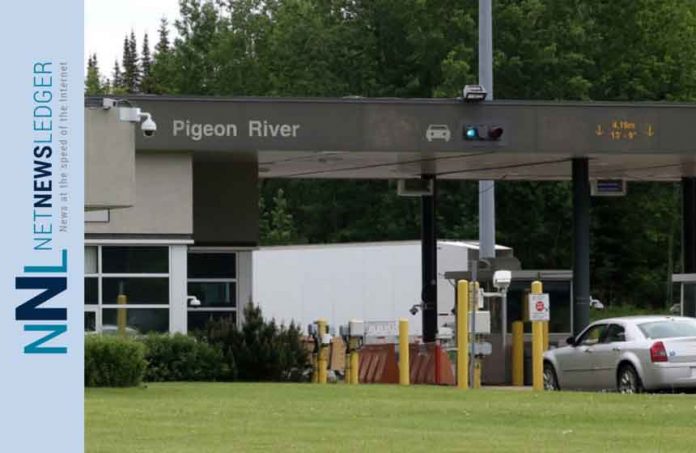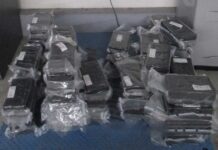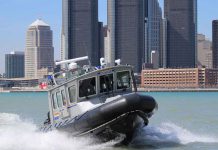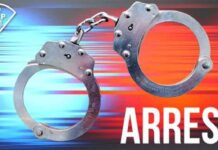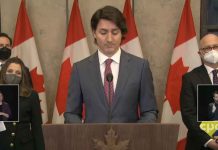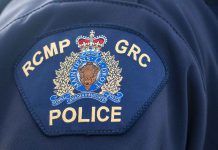THUNDER. BAY – LIVING – For the Civic Holiday Monday are you planning a trip to “Thunder Bay Deep South”? Duluth Minnesota is a popular destination for many locals in Thunder Bay, like International Falls is popular for Fort Frances residents.
Heading south means crossing to border to come back home.
The Canada Border Services Agency (CBSA) reminds travellers of what to expect when crossing the border over the upcoming Civic Holiday long weekend in Alberta, British Columbia, Saskatchewan, Ontario, Manitoba, New Brunswick, Nova Scotia, Northwest Territories and Nunavut.
Every day, the CBSA works hard to protect Canadians, support the economy and ensure the safe and efficient movement of people and goods across our borders. In 2023, we welcomed over 86 million travellers and intercepted more than 72,200 kg of prohibited drugs, cannabis, narcotics, and chemicals, representing an increase of close to 30% from 2022.
The CBSA dedicates significant efforts to planning and preparing for peak periods, including long weekends and summer months. We monitor traveller volumes and plan to minimize border wait times at land ports of entry and at international airports, without compromising safety and security.
Here are some tips to help you plan for your trip:
- Check border wait timesand expect delays.
o Early mornings are the best time to cross the border to avoid wait times.
o The Monday of holiday long weekends tend to be the busiest.
o Consider an alternative port of entry with shorter wait times or less traffic.
o Check the port of entry’s hours of operation on the official CBSA Directory of Offices and Services.
o If you are using a GPS application (such as Google Maps, Apple Maps or Waze) to direct you to a port of entry, consider checking different navigation options (such as fastest and shortest routes) to determine the preferred route of travel.
- Have your travel documentshandy. This will speed up processing times at the border.
- Be prepared to declare. Declare everything you have with you upon entry into Canada. If arriving by land, you are responsible for everything inside your vehicle. If you are the operator of a boat entering Canadian waters with the intent to disembark, you are responsible for reporting your goods on board.
- Travelling with children?When travelling with a child who is not your own or for whom you don’t have full legal custody, we recommend you have a consent letter from the parent or legal guardian authorizing you to travel with the child. We are always watching for missing children, and in the absence of the letter, officers may ask additional questions.
- Travelling with pets?Pets must meet specific requirements to enter Canada. Review Importing and travelling with pets before leaving.
o Will you be going to the U.S. with a dog? As of August 1, 2024, there are updated documentation requirements for all dogs entering the U.S. from Canada. For more information, visit Dogs travelling to the United States.
- Flying into Canada?Use Advance Declaration and make your customs and immigration declaration up to 72 hours in advance of your arrival into Canada at participating airports.
- Entering Canada by boat?You must report to the CBSA without delay. Review reporting requirements for private boaters before making travel plans.
o Are you towing or transporting a watercraft or any water-related equipment (canoe, paddleboard, etc.) into Canada? If so, these items must be clean, dry, and free of any aquatic invasive plants or species. Learn more: Clean, Drain, Dry and Decontaminate.
Are you bringing any of the following into Canada?
- Food, plant, or animal products: Consult the Automated Import Reference System (AIRS)before bringing any food, plant, or animal products into Canada.
- Poultry products: Be sure to review current restrictions on poultry and birds from the United Statesbefore bringing these products across the border. Homemade food or leftovers containing poultry cannot be brought into Canada.
- Fireworks: Consult Importing, exporting and transporting fireworks to ensure that the fireworks you are bringing in are authorized.
- Medication: Make sure you understand your responsibilitieswhen travelling with medication.
- Firewood:Firewood from outside of Canada is not permitted as it may contain diseases or invasive insects. Buy local and burn local.
- Goods purchased abroad: If you are a Canadian resident, personal exemptionsallow you to bring goods (up to a certain value), back to Canada without paying regular duty and taxes, including alcohol and tobacco.
- Make sure know how much you are bringing back in Canadian dollars and have your receipts readily available for the officer.
- Use the CBSA duty and taxes estimatorto help estimate the amounts owed on goods purchased abroad.
Restricted and prohibited goods:
Make sure you review the necessary information before attempting to bring certain items into Canada. If not, you risk having your goods seized or facing fines and prosecution.
- Firearms:Leave them at home. You are encouraged not to travel with firearms. If you choose to do so, be sure to check the rules on importing firearms.
- Weapons: Restricted and prohibited goods include pepper spray, switchblades, and butterfly knives.
- Narcotics: Narcotics such as cocaine and heroin are illegal in Canada. If you are found to be in possession of illegal drugs (on your person, in your vehicle, or in your luggage) you will be arrested and may be charged. The drugs will be seized.
- Cannabis: Don’t bring it in. Don’t take it out. While cannabis is legal in Canada, bringing it across the border in any form, including oils containing tetrahydrocannabinol (THC) or cannabidiol (CBD), without a permit or exemption authorized by Health Canadais a serious criminal offence subject to arrest and prosecution. A medical prescription from a doctor does not count as Health Canada authorization.
Not sure? Ask a CBSA officer. The best way to save time is to be open and honest with the border services officer. If you are not sure about what to declare, don’t hesitate to ask!
For more information, visit the CBSA Website or call us at 1-800-461-9999.
Associated links

